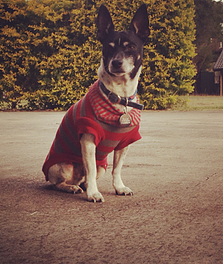Senior Care
Just like us our pets get old too! Most dogs are classified as seniors at: 6-7 years of age.
Cats are classified as seniors at: 8 years of age.
To help detect and prevent age related illness, we recommend your senior pets have a 6 monthly check up with the vet. In this time your pet will age 3.5 years, so it is important to their well-being.
Dental disease is a major problem in our pets and is more common as pets age. Gum infections and loss of teeth can not only be painful but can leave your pet having difficulty eating. If untreated bacteria from the mouth can move through the blood stream and effect your pets heart. Treating dental disease gives pets a new lease on life and beautiful fresh breath.
Weight is a problem for anyone especially our furry friends as they age. As their metabolism and activity levels slow down the weight tends to creep on. Joints and the heart are a concern.
Skin conditions occur in older pets as their skin is less elastic and they tend to lose their hair. This is due because hair follicles are less active in later life.
Senses such as sight, sound and smell will depreciate as your pets age. Cataracts occur in older pets, but they seem to adapt well to changes. Appetites will decrease so having a nutritious balanced diet is necessary.
Aging in pets is just like aging in humans they get sore joints, tired and can’t do everything they use to be able to do. Arthritis can set in and to help with the discomfort there are a lot of products on the market.
Just because your pets gets older doesn’t mean they cant play with toys. There are great toys available for our senior pets. Making their later days in life just as enjoyable.
Here are some things to look out for at home:
- Sleeping for longer periods
- more rapid breathing when not panting
- Urination or defecation problems
- Weight changes
- Drinking more
- Fussy eating
- Dullness of the coat
- Bad breath
- Stiffness
- Coughing
- Behavioral changes
- Less energy
- Increased urination
- Reluctant to exercise
- Shortness of breath
Please contact the surgery if you are noticing any of the above and would like to implement a senior health care plan.

